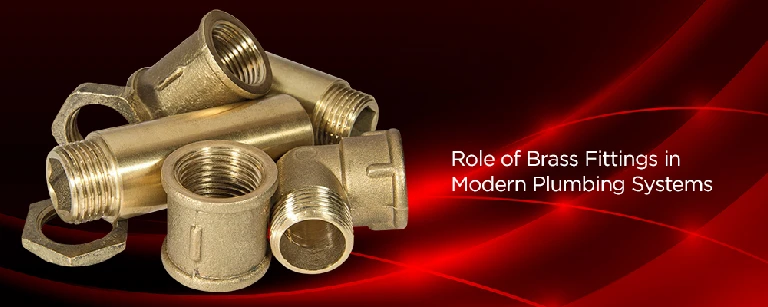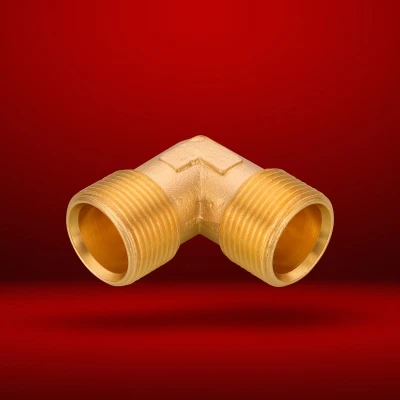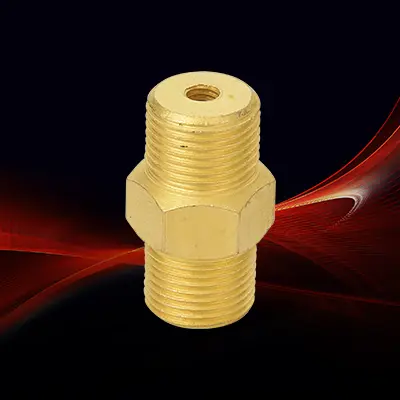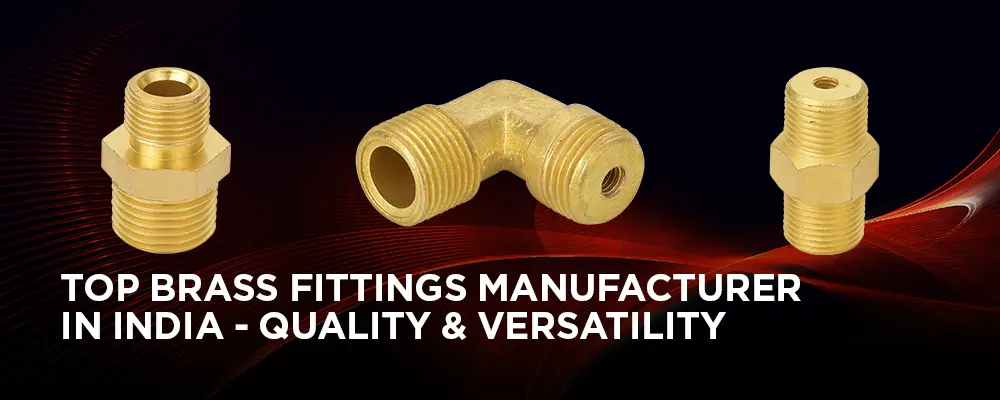
As urban infrastructure grows and the demand for efficient plumbing solutions increases, the materials used in these systems become even more critical. Among the wide variety of options available, brass fittings have emerged as a trusted and reliable choice across residential, commercial, and industrial pipe and fittings applications. Their unmatched strength, corrosion resistance, and versatility make them a staple in plumbing design.
At the heart of many modern systems, brass pipes and fittings ensure smooth water flow, minimal maintenance, and long-lasting durability. Whether it’s a high-rise apartment, a manufacturing unit, or a commercial building, the role of brass fittings in maintaining seamless plumbing cannot be overstated.
In this blog, we will explore what brass fittings are, their advantages, usage in various plumbing scenarios, comparison with other materials, and why they continue to be the top pick for industry professionals. If you’re seeking high-performance plumbing accessories backed by trusted pipe fittings manufacturers, read on to discover why brass fittings are the way forward.
Brass fittings are connectors made from an alloy of copper and zinc, widely used in plumbing systems to join, regulate, or terminate sections of piping. These plumbing accessories are manufactured in various forms—elbows, tees, coupling pipe fitting, adapters, brass compression fittings, and more—allowing for customization based on plumbing needs.
Brass plumbing fittings are preferred not only for their robust structure but also for their compatibility with both hot and cold water systems. This makes them a universal component across plumbing projects. Whether it’s a residential kitchen or an industrial pipe and fittings setup, brass fittings provide a reliable connection that minimizes leaks and enhances system integrity.
A notable type in this category is brass compression fittings, which allow for quick, tool-free installation while ensuring a tight seal. These are often used in situations where welding or soldering is impractical, making them a convenient solution for quick repairs and flexible designs.
With a significant demand in the U.S. market, brass fittings USA-based standards are often a benchmark for quality worldwide. As reliable brass fittings manufacturers, companies like Atlas Metal ensure that every component meets the highest standards of precision, performance, and safety.
Brass pipes and fittings offer a series of well-recognized advantages that make them suitable for modern plumbing systems. First and foremost, brass is highly corrosion-resistant. This ensures that fittings can withstand years of use without rusting, scaling, or degrading—especially important for applications involving water.
Secondly, brass plumbing fittings offer exceptional durability. They are less prone to cracking or breaking under pressure, making them ideal for both high-pressure and high-temperature applications. This characteristic is particularly beneficial for industrial pipe and fittings systems, where reliability is non-negotiable.
In addition, brass fittings are easy to install and customize. Their malleability allows for complex shapes and sizes, while still retaining their strength. This makes coupling pipe fitting solutions much more manageable during installation or repair work.
Another major benefit is brass‘s antibacterial properties, which reduce the risk of microbial growth inside pipes—a vital feature for drinking water systems. This, combined with leak-free connections from brass compression fittings, contributes to safer and more hygienic plumbing networks.
Finally, brass fittings are compatible with a wide range of materials, including copper, plastic, and steel pipes. This compatibility makes them one of the most adaptable plumbing accessories available in the market today.
The versatility of brass fittings extends across a wide array of applications. From household taps and valves to complex industrial pipe and fittings, brass plumbing fittings are used in nearly every plumbing context.
In residential settings, brass fittings are typically used in kitchens, bathrooms, and utility areas due to their ability to handle both hot and cold water efficiently. For example, a brass coupling pipe fitting is often used to connect water heaters or boilers to the main water supply.
Commercial spaces like hotels, hospitals, and office buildings also benefit from the reliability of brass pipes and fittings. These environments require constant water flow and minimal downtime, making brass fittings the ideal solution for their plumbing systems.
In industrial applications, where the plumbing infrastructure must withstand higher pressures and chemical exposure, brass excels. Industrial pipe and fittings made from brass are commonly used in gas lines, chemical transport, and HVAC systems due to their thermal stability and resistance to corrosion.
Moreover, brass fittings are integral components in irrigation systems, fire safety infrastructure, and even marine plumbing. Their unmatched reliability ensures safety and performance across sectors.
As one of the leading brass fittings manufacturers, Atlas Metal ensures that every product meets industry-specific demands with precision, longevity, and quality.
When choosing plumbing accessories, it’s essential to evaluate performance, longevity, and cost. Brass fittings outperform many alternatives on these fronts.
- Brass vs. Plastic: Plastic fittings, although lightweight and inexpensive, can degrade over time—especially when exposed to heat or sunlight. They may also warp under high pressure. Brass fittings, on the other hand, offer excellent temperature resistance and far superior durability.
- Brass vs. Steel: Steel is strong but prone to corrosion unless it’s stainless. It’s also heavier and can be harder to install. Brass plumbing fittings offer corrosion resistance without needing protective coatings, reducing long-term maintenance.
- Brass vs. Copper: While copper pipes are widely used, copper fittings can be less flexible and more expensive than brass. Brass provides a balanced combination of strength, malleability, and affordability.
In summary, brass compression fittings and other brass pipe solutions offer the best of all worlds—strength, longevity, and ease of installation—making them the preferred choice of professional pipe fittings manufacturers and users.
One of the standout features of brass pipes and fittings is their long service life. On average, well-installed brass fittings can last anywhere from 40 to 70 years, depending on usage and environmental factors. This makes them a cost-effective choice in the long run.
Routine maintenance is minimal. Unlike materials that rust or scale, brass remains clean and operational for years. Occasional checks for tightness and seal quality are typically sufficient to maintain their performance.
Additionally, brass compression fittings offer a leak-proof seal that remains intact even under fluctuating temperatures and pressures. This reduces the chances of costly repairs or emergency maintenance.
Because they resist corrosion, brass plumbing fittings are especially advantageous in areas with hard water. Their durability under stress makes them ideal for both high-rise residential buildings and large-scale industrial pipe and fittings operations.
As leading pipe fittings manufacturers, Atlas Metal provides robust brass fittings that require little maintenance but deliver high performance over decades of use.
In today’s world, environmental and health safety is just as important as performance. Brass fittings excel in both.
Brass is a recyclable material, contributing to sustainable manufacturing practices. Discarded brass fittings can be melted and reused, reducing environmental impact and conserving raw materials. Atlas Metal is committed to these eco-friendly practices, ensuring responsible production processes.
Health-wise, brass pipes and fittings are safe for potable water systems when manufactured according to lead-free guidelines. Modern brass plumbing fittings, especially those produced by reputed brass fittings manufacturers, are designed to comply with health standards and eliminate the risk of contamination.
Brass also naturally inhibits bacterial growth. This makes it ideal for healthcare, hospitality, and food-related plumbing accessories. Combined with a long lifecycle, this reduces material waste and supports sustainable infrastructure.
Choosing brass fittings not only enhances system performance but also aligns with global goals for safer, cleaner, and greener plumbing solutions.
From strength and safety to sustainability and performance, brass fittings check every box. Their ability to endure pressure, resist corrosion, and provide long-lasting connections makes them an irreplaceable component in modern plumbing.
Whether you are a contractor, architect, or homeowner, investing in quality brass pipes and fittings from trusted pipe fittings manufacturers like Atlas Metal ensures peace of mind and long-term value.
The next time you’re designing or upgrading a plumbing system, remember that quality plumbing accessories lay the foundation for durability. Choose brass. Choose excellence.
Are brass fittings safe for drinking water systems?
Yes. When manufactured to meet industry standards, brass pipes and fittings are safe for potable water. They resist microbial growth and ensure clean water flow.
How do brass fittings perform under high temperatures and pressures?
Brass compression fittings and other types can handle extreme conditions, making them ideal for industrial pipe and fittings systems involving heat and pressure.
Can brass fittings be used for both residential and commercial plumbing?
Absolutely. Brass plumbing fittings are versatile and suitable for homes, offices, and even large-scale industrial pipe and fittings systems.
How long do brass fittings typically last?
Brass fittings can last up to 70 years with minimal maintenance, offering a long-term solution that reduces costs over time.



